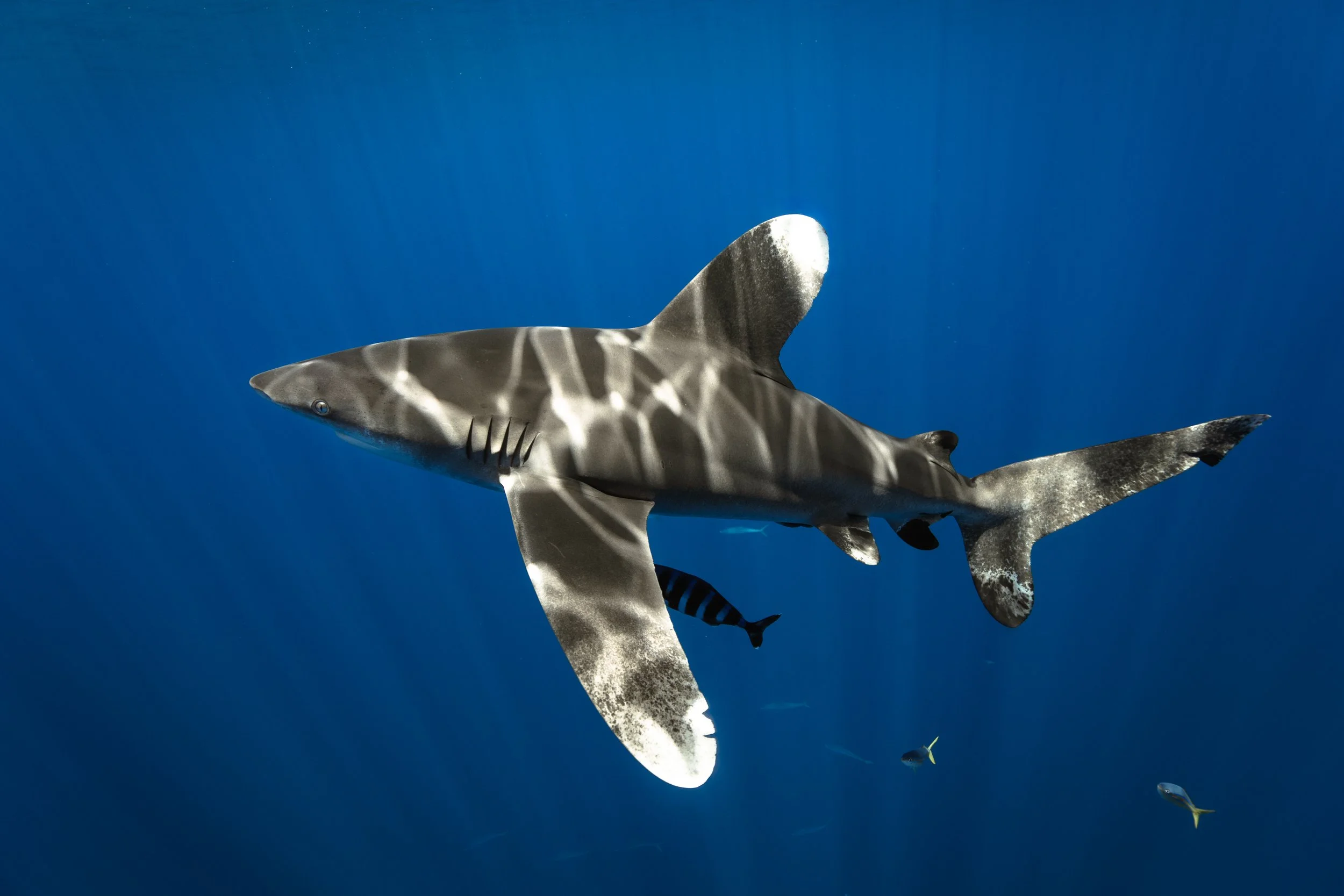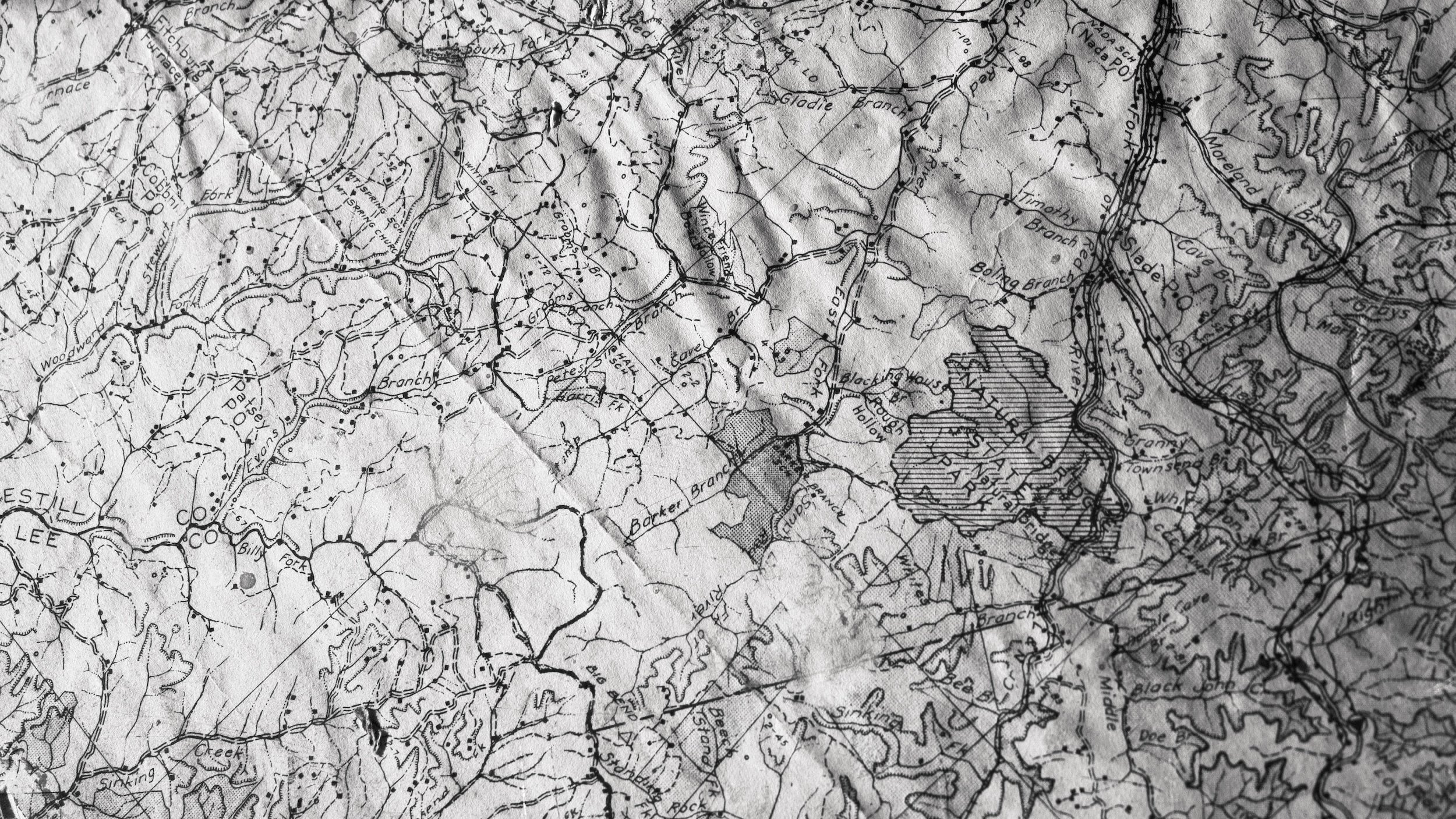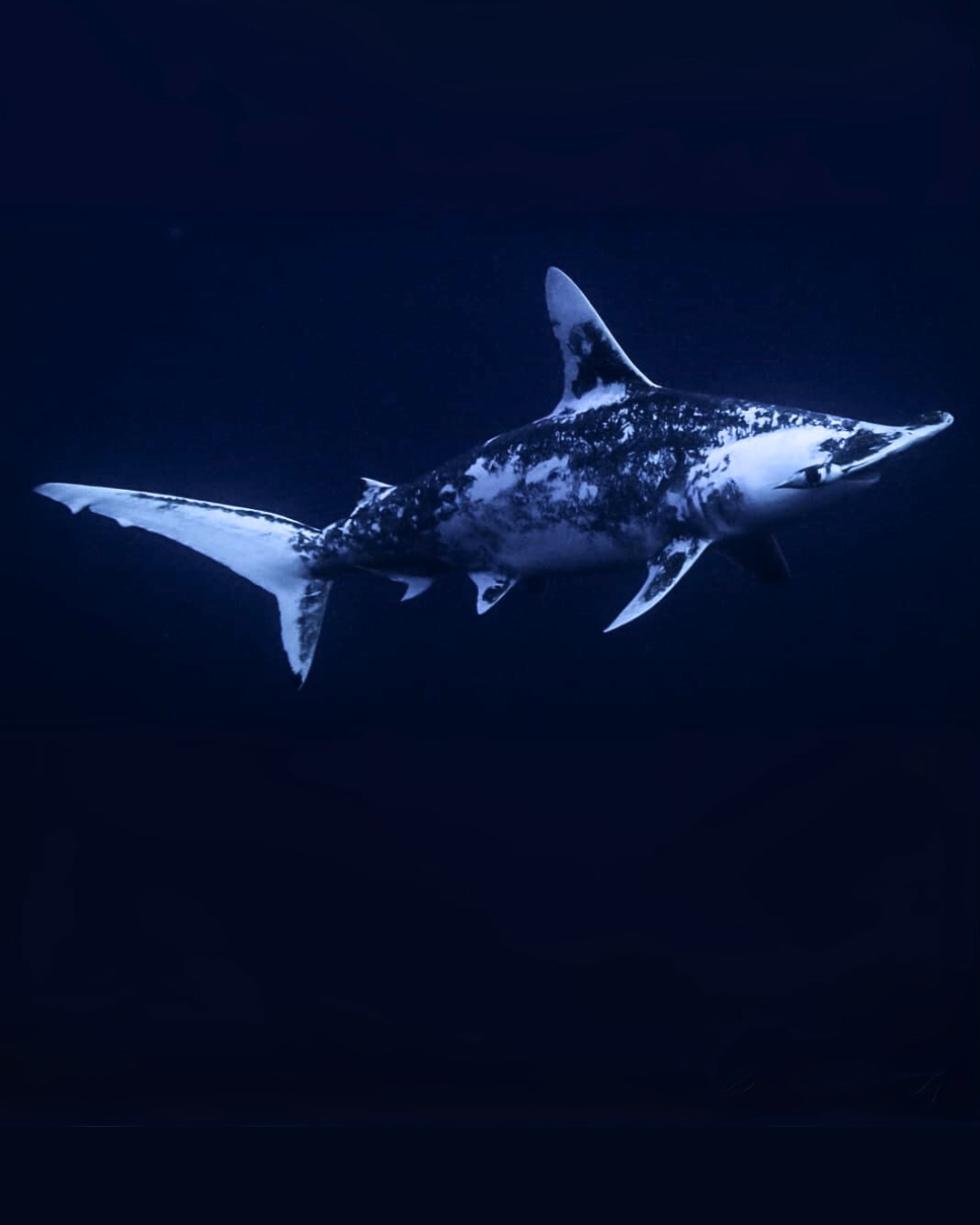
↓
COLLABORATIVE SCIENCE. COMMUNITY ENGAGEMENT. CONSERVATION.
The Miyaru Programme is a Maldivian NGO bringing together scientists, conservationists, and community members on a mission to study, document, and further protect the shark populations of the Maldives and surrounding waters.

SHARK HUB: REPORT A SHARK SIGHTING
Have you come across an endangered or rare shark species while diving or fishing? Or observed mating behaviour?
Share your sighting information with us!
Our Partners, FUNDERS & Collaborators
RECENT PUBLICATIONS
PIEBALDISM IN DIFFERENT SHARK SPECIES
Chromatic disorders in elasmobranchs (sharks and rays) have been reported in several species, but little is known about their true abundance or consequences for survival and fitness. Piebaldism, a form of leucism characterized by partial loss of pigmentation, is among the rarest and least understood chromatic disorders reported in elasmobranchs. We conducted an assessment of published and unpublished cases of piebaldism observed in sharks in the wild. We report the observation of 25 incidences of this condition witnessed in 17 species of sharks from 11 families.
“MOMMA SHARK PROJECT” FUVAHMULAH
The reproductive state of wild, free-swimming tiger sharks (Galeocerdo cuvier), was assessed using underwater ultrasonography at a diving site in Fuvahmulah, a Maldivian atoll within the central Indian Ocean. The presence of embryos were observed in 93% of the adult sharks (26/28) and two distinct embryonic size groups were observed within the subset of scanned adult females. The results suggest that the island functions as a gestation ground for pregnant tiger sharks.

↓
↓
↓
↓
READ OUR 2024 ANNUAL REPORT
DIVE INTO OUR SECOND YEAR AS AN NGO AND NEW COLLABORATIONS, GROWTH, AS WELL AS SCIENTIFIC DISCOVERIES
READ OUR 2023 ANNUAL REPORT
OUR FIRST YEAR AS AN NGO HAS BEEN full of training, education and outreach and the launch of new research projects.
We have lost MORE THAN 71% of our World’s shark populations since THE 1970S DUE TO INCREASED HUMAN ACTIVITIES AT SEA.
SHARKS ARE ‘FUNCTIONALLY EXTINCT’ IN 20%
OF THE WORLD’S CORAL REEFS.
The Maldives is one of the most important shark sanctuaries in the Indian Ocean and home to globally significant populations of large predatory sharks, including several critically endangered species.
Outside of Maldivian waters sharks are actively targeted by international fishing fleets for their fins, meat and oil, but while they are protected from targeted fishing within the nation’s waters these elasmobranchs continue to face anthropogenic impacts from pollution and entanglement, interaction with vessels, unsustainable tourism practices, as well as habitat loss due to land reclamation.
Large research gaps on these issues, as well as the drivers, reproduction and movements of the shark populations inhabiting the Maldives and surrounding waters still remain to be filled.
That's why we founded the Miyaru Programme.
↓
↓

WE’RE DRIVEN BY A PASSION FOR SHARKS





